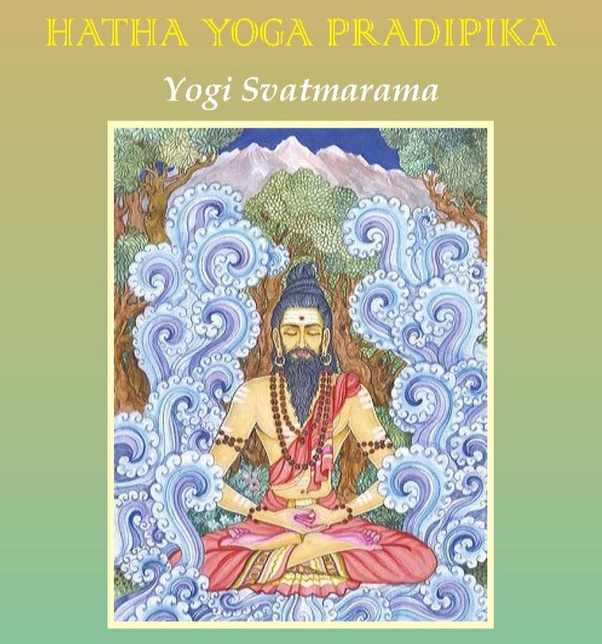This is one of the best tips that you could possibly receive before approaching Hatha for the first time, or even as an experienced practitioner!
The following is an excerpt from the Hatha Yoga Pradipika, a fundamental source text on the art & science of Yoga, compiled by Yogi Svatmarama almost 700 years ago.

CH. 1 The Prerequisites
(1) Reverence to Siva the Lord of Yoga, who taught [his wife] Parvati hatha wisdom as the first step to the pinnacle of raja yoga. It is a good practice to evoke a divine power before beginning serious work. We may call it Siva (the Benevolent) or God or Ganesa (gana == legions; isa = master).
(2) Having thus solemnly saluted his master. Yogi Svatmarama now presents hatha vidya [vidya = wisdom] solely and exclusively for the attainment of raja yoga.
The classical commentary’s admonition “solely for the attainment of raja yoga” indicates two delimitations. The lower level indicates that hatha yoga is not being taught for its own sake, for the achievement of physical fitness and worldly power, but is a method to prepare the student for the rigors of raja yoga.
The upper delimitation needs a little more elucidation. As we will soon and often hear, the real goal of a yogi is to become a siddha. A siddha, a person in possession of siddhis, has developed powers that can readily be called supernatural. There are eight siddhis, the highest of which is Nirvana, the Great Liberation.
If in India, even with great masters, one so seldom has a chance to witness the miracles that these siddhas have the powers to perform, it is simply because a siddha who does not want to get the reputation of a black magician will keep his powers carefully concealed and refuse to use them for worldly purposes. If he does misuse a siddhi, the misused siddhi strikes back at him and causes him some kind of unpleasantness, usually of a physical nature.
One does not necessarily have to believe such things. You may put this down to the fabulous imagination of the East, and say so. The yogi does not resent your doubts, and they will not in any way impede the objective study of the wisdom of yoga. In fact, the text gives warning against striving primarily for powers: “solely for the attainment of raja yoga.”
The deeper purpose of the siddhis is something else. Through the developing forces the student recognizes what stage of evolution he has reached. Certain phenomena will tell him that he should change his way of practice, and if after due practice these phenomena do not occur, he surely has made a mistake. The siddhis are signposts on his way to the final goal, liberation. To be a siddha means to be in possession of all the characteristics of the final yoga goal.
“Siddhis,” my guru told me, “are not the aim of our work. We want to become siddhas in order to enjoy the realization and perfection of a siddha, not to gain worldly position or evade responsibilities.” And since he himself is a siddha, this sentence clearly indicates what is defined as the upper delimitation. Yoga is not for braggarts or egocentrics, nor is it for those who merely want to add method to their physical training.
(3) For those who wander in the darkness of conflicting creeds [and philosophies], unable to reach to the heights of raja yoga [self−knowledge and cosmic consciousness] the merciful Yogi Svatmarama has lit the torch of hatha wisdom.
Raja yoga, the royal yoga is a goal that many strive to reach without even being aware of it, without having the slightest inkling of yoga. What else is Faust aspiring to but perfect self−knowledge and cosmic consciousness, to “know that force which holds the universe together, to see creative power and the seed”?
For the student of Indian wisdom this reference to Faust presents an especially interesting parallel. Goethe speaks here of creative power and of seed, in Sanskrit shakti and bindu, two of the most important terms in tantra yoga, as we will see later on. At the time of Goethe these teachings had not yet reached the West, and it speaks for his universal genius that he recognized their supreme importance.

…is a Saiva Tantrika, Gyana Yogi and founder of Uma Maheshwara Yoga & Ayurveda. David has an MA in Semiotics, lives in Japan with his family and works as a coach in L & D, devoting his time to developing science-based tools and programs that help people reach the fullest potential of the human condition.
Discover more from REAL YOGA
Subscribe to get the latest posts sent to your email.

